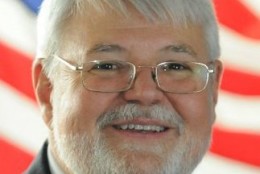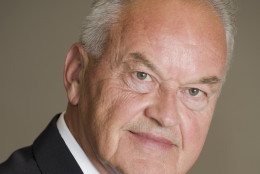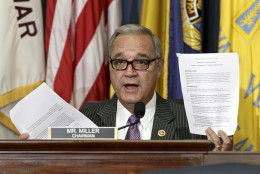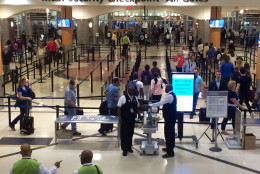American Federation of Government Employees
-
President Barack Obama signed a new letter to Congress alerting them of his plan to tell agencies to give every federal employee a 2.1 percent raise in 2017.
December 08, 2016 -
For J. David Cox, national president for the American Federation of Government Employees, the outcome of the 2016 presidential election came down to "bread and butter issues." And those are challenges that his union, which represents more than 309,000 federal employees, will rally for with the start of the new administration as well.
December 07, 2016 -
Are you in search of a good steady government job or anxious to move up the promotion ladder? Senior Correspondent Mike Causey says happy days may be here again.
November 10, 2016 -
The National Treasury Employees Union and Office of Personnel Management are battling in court on whether or not a judge should dismiss a lawsuit against the agency, stemming from the 2015 data breach.
October 31, 2016 -
The council also revealed an annual study from the Office of Personnel and Management and Bureau of Labor Statistics, which measures the pay gap between federal employees and private sector workers.
October 28, 2016 -
Federal employees and their families will see a 4.4 percent increase in their Federal Employee Health Benefit premiums next year. But FEHBP participants will pay 6.2 percent toward their health care costs. The government share is 3.7 percent.
September 28, 2016 -
The American Federation of Government Employees, the largest federal employee union, has pushed for reversing per diem travel cuts for defense civilian employees in the final version of the bill.
September 15, 2016 -
The House is moving forward on a bill that would shorten the time in which Veterans Affairs employees and senior executives could appeal disciplinary actions and removals. The VA Accountability First and Appeals Modernization Act of 2016 also includes provisions that would change the veterans' appeals process, but the bill is drawing ire from the Obama administration, House Democrats and federal employee groups.
September 13, 2016 -
Welcome to the #FedFeed, a daily collection of federal ephemera gathered from social media and presented for your enjoyment.
September 05, 2016 -
TSA released a determination on collective bargaining on Aug. 25, which changed some of the rules between the agency and the union. AFGE and TSA are currently involved in extended contract negotiations after TSA employees voted down the agreement reached in late 2015.
August 30, 2016 -
When labor-management relationships are strong, employee engagement improves, federal union leaders said during a discussion at the Federal Mediation and Conciliation Service conference in Chicago. Union leaders say their partnerships with agencies have improved over the past eight years, but the success of those partnerships too often depends on the administration.
August 18, 2016 -
The congressionally-appointed Commission on Care has issued its final report on how to overhaul the Veterans Benefits Administration. It calls for greater use of local, private sector networks to augment the work of VA hospitals and clinics. The recommendations have also drawn the fire of the American Federation of Government Employees. J. David Cox, AFGE's national president tells Federal Drive with Tom Temin why he objects.
July 18, 2016 -
Among the VA Commission on Care's 18 recommendations are proposals that could have major implications for the Veterans Health Administration workforce, from its size and scope to its overall organizational structure. VA Secretary Bob McDonald said the department will respond to the commission's report in the coming weeks.
July 08, 2016 -
The House passed a bill that would change the way agencies discipline and remove federal employees and members of the Senior Executive Service. One provision would put all SES members under the same, expedited disciplinary process that senior executives at the Veterans Affairs Department had until the Justice Department challenged its constitutionality.
July 06, 2016 -
The Veterans Affairs Department says it’s earning back trust and confidence from the veterans it serves, and employee engagement within the department is also improving. This comes roughly 10 days before the VA Commission on Care is expected to pitch a major overhaul to the department’s health care and personnel systems.
June 21, 2016













